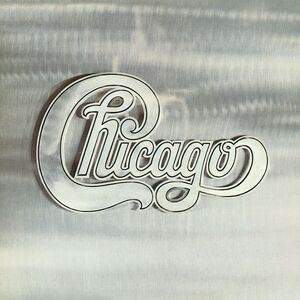Chicago is an American rock band formed in Chicago in 1967. The group began calling themselves the Chicago Transit Authority in 1968, then shortened the name in 1969. Self-described as a "rock and roll band with horns," their songs often also combine elements of classical music, jazz, R&B, and pop music.

Terry Alan Kath was an American guitarist and singer-songwriter who is best known as a founding member of the rock band Chicago. He played lead guitar and sang lead vocals on many of the band's early hit singles alongside Robert Lamm and Peter Cetera. He has been praised by his bandmates and other musicians for his guitar skills and his Ray Charles–influenced vocal style. Jimi Hendrix cited Terry Kath as one of his favorite guitarists, and considered Kath to be "the best guitarist in the universe".
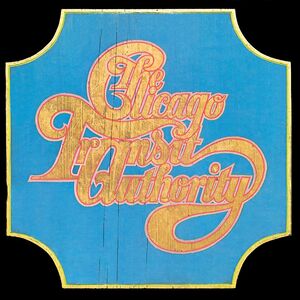
Chicago Transit Authority is the debut studio album by the American rock band Chicago, known at the time of release as Chicago Transit Authority. It was recorded and released in April 1969 and became a sleeper hit, reaching number 17 on the Billboard 200 by 1971. Chicago Transit Authority spawned several successful singles, including "Does Anybody Really Know What Time It Is?", "Questions 67 and 68" and "Beginnings". The album stayed on the Billboard chart for 171 weeks, beating the previous record for a rock album's longevity of 155 weeks and has been certified double platinum by the Recording Industry Association of America (RIAA). For this inaugural recording effort, the group was nominated for a Grammy Award for 1969 Best New Artist of the Year. The album was inducted into the Grammy Hall of Fame in 2014.
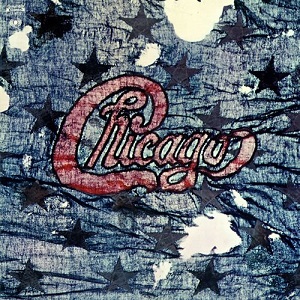
Chicago III is the third studio album by the American rock band Chicago. It was released on January 11, 1971, through Columbia Records. The album was produced by James William Guercio and was the band's third consecutive double album in less than two years.

Chicago at Carnegie Hall is the first live album, and fourth album overall, by American band Chicago. It was initially released on October 25, 1971 by Columbia Records as a four-LP vinyl box set, and was also available for a time as two separate two-record sets. A quadraphonic mix of the album was proposed, but was never made, possibly due to the band's objection to the album being released in the first place. This is the only Chicago album of the group's first ten releases not to have a quadraphonic release in any format.
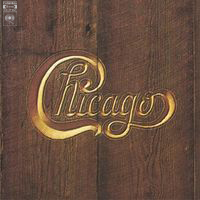
Chicago V is the fourth studio album by the American rock band Chicago. It was released on July 10, 1972 by Columbia Records. It is notable for being the group's first single album release, after having released three consecutive double albums and a four-disc box set of live material.

Chicago VI is the fifth studio album by American rock band Chicago and was released on June 25, 1973, by Columbia Records. It was the band's second in a string of five consecutive albums to make it to No. 1 in the US, was certified gold less than a month after its release, and has been certified two-times platinum since. It is the first album to feature percussionist Laudir de Oliveira, who would become a full-fledged member of the band for Chicago VIII. VI is the first studio album to feature the original band members on the cover before the death of leader and co-founder Terry Kath.

Chicago VII is the sixth studio album by American rock band Chicago. It was released on March 11, 1974 by Columbia Records. It is notable for being their first double album of new material since 1971's Chicago III and remains their final studio release in that format. It features session percussionist Laudir de Oliveira, who would become a full-fledged band member for the release of Chicago VIII the following year.
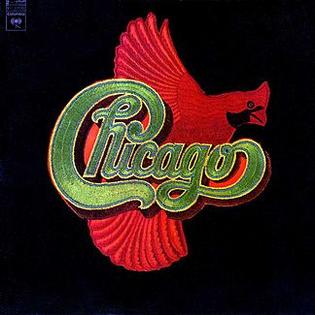
Chicago VIII is the seventh studio album by American rock band Chicago, released on March 24, 1975 by Columbia Records. Following the experimental jazz/pop stylings of Chicago VII, the band returned to a more streamlined rock-based sound on this follow-up.

Chicago IX: Chicago's Greatest Hits is the first greatest hits album, and ninth album overall, by the American band Chicago and was released in 1975 by Columbia Records in both stereo and SQ quadraphonic versions.

Chicago X is the eighth studio album by the American rock band Chicago. It was recorded at Caribou Ranch and it was released by Columbia Records on June 14, 1976. The album made it to number three on the Billboard 200, and was certified gold by the Recording Industry Association of America (RIAA) on June 21, 1976, a week after its release. It was the band's first album to be certified platinum, on September 14, 1976, and has since been certified multi-platinum. In honor of the group's platinum album achievement, Columbia Records awarded the group a 25-pound bar of pure platinum, made by Cartier.
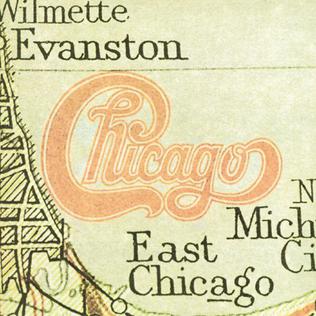
Chicago XI is the ninth studio album by the American rock band Chicago. It was released on September 12, 1977 through Columbia Records. It was both the last to feature guitarist and vocalist Terry Kath prior to his death in a gun accident just over four months later, and the last to be produced by longtime associate of the band James William Guercio.
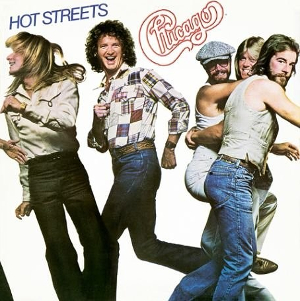
Hot Streets is the tenth studio album by the American rock band Chicago, released on October 2, 1978, by Columbia Records. This was the band's first album with all-new material released since their second that did not have a numbered title. It was also the first album not to feature original guitarist/vocalist Terry Kath, who died from an accidental self-inflicted gunshot wound in January 1978. He was replaced by Donnie Dacus on this album.
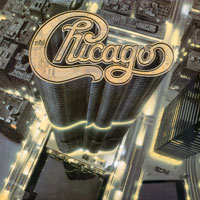
Chicago 13 is the eleventh studio album by American rock band Chicago, released on August 13, 1979, by Columbia Records. Chicago 13 was the band's final release featuring lead guitarist Donnie Dacus, who had followed the late founding member, guitarist Terry Kath. All band members contributed to the songwriting.
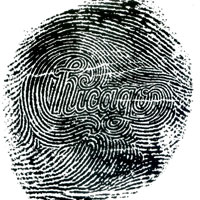
Chicago XIV is the twelfth studio album by American rock band Chicago, released on July 21, 1980. Recorded at a time of waning interest in the band, Chicago XIV remains one of Chicago's poorest-selling albums, failing to reach Gold certification by the Recording Industry Association of America (RIAA), and was deemed a commercial flop. It is also notable for being their last studio album with Columbia Records, and the last one to feature percussionist Laudir de Oliveira.
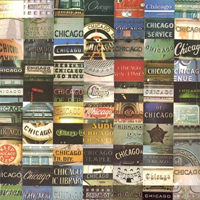
Greatest Hits, Volume II is the second greatest hits album by American rock band Chicago, released on November 23, 1981 by Columbia Records.
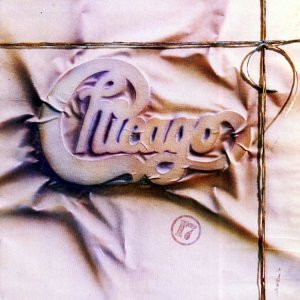
Chicago 17 is the fourteenth studio album by American rock band Chicago, released on May 14, 1984. It was the group's second release for Full Moon/Warner Bros. Records, their second album to be produced by David Foster and their last with founding bassist/vocalist Peter Cetera. As of 2023, it remains Chicago's best-selling album, with over 6.1 million units being sold in the United States, the United Kingdom, and Japan. Four singles were released from the album, all of which peaked in the top 20 on the Billboard Hot 100 chart. The success of the music videos for "Stay the Night", "You're the Inspiration", and "Hard Habit to Break" on MTV propelled Chicago 17 to achieve an RIAA certification of six times platinum.

The Very Best of Chicago: Only the Beginning is a double greatest hits album by the American band Chicago, their twenty-seventh album overall. Released in 2002, this collection marked the beginning of a long-term partnership with Rhino Entertainment which, between 2002 and 2005, would remaster and re-release Chicago's 1969–1980 Columbia Records catalog.

"Questions 67 and 68" is a 1969 song written by Robert Lamm for the rock band Chicago and recorded for their debut album Chicago Transit Authority. It was their first single release. Peter Cetera is the primary lead singer with Lamm also on vocals. In 2015, Dave Swanson, writing for Ultimate Classic Rock, listed the song as ninth in a list of top ten Chicago songs. Writing for Rock Cellar magazine, Frank Mastropolo rated the song as number 11 in a list of "Top 11 Question Songs".

"Feelin' Stronger Every Day" is a song written by Peter Cetera and James Pankow for the group Chicago and recorded for their album Chicago VI (1973). The first single released from that album, it reached #10 on the U.S. Billboard Hot 100.
